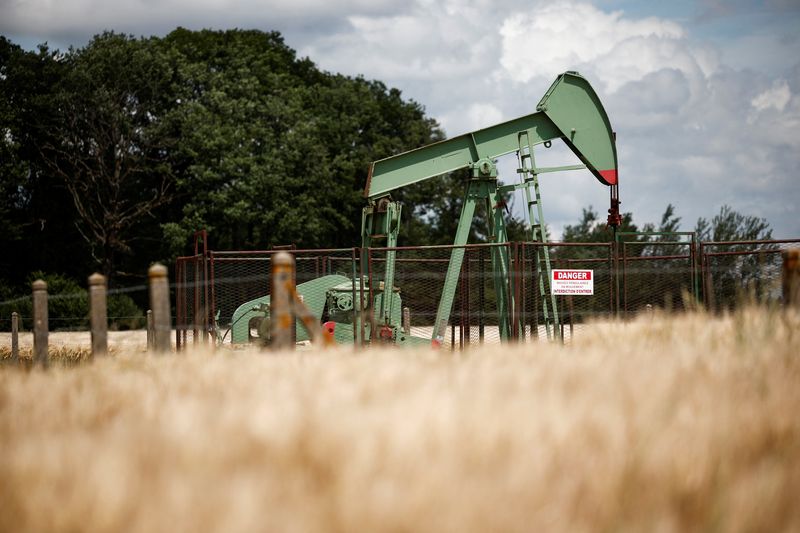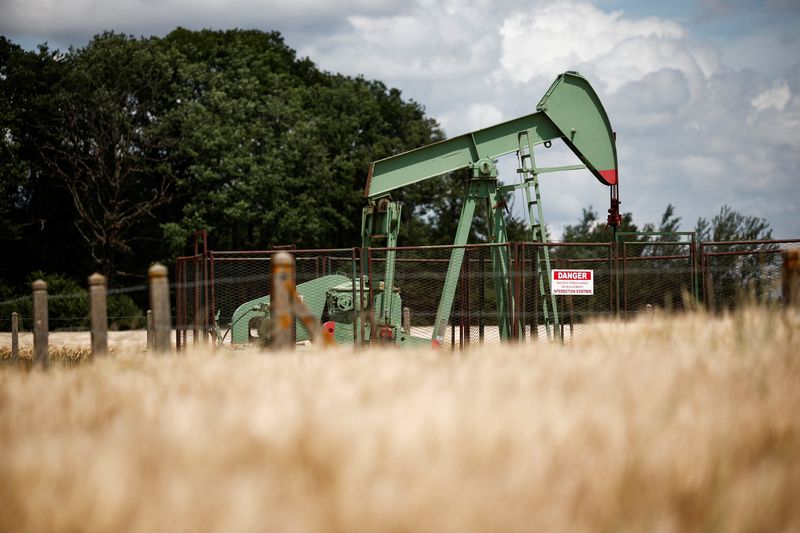
(Reuters) -Oil prices inched higher on Friday as investors weighed supply concerns in the Middle East, although signs of weakened demand limited gains.
Brent crude futures for October delivery, which expire on Friday, were up 23 cents, or 0.3%, at $80.17 a barrel by 0410 GMT. The more actively traded contract for November rose 20 cents, or 0.2%, to $79.02.
U.S. West Texas Intermediate crude futures gained 18 cents, or 0.2%, to $76.09.
Both benchmarks settled more than $1 higher on Thursday on oil supply concerns, up 1.5% and 1.7% respectively for the week so far.
“Ongoing concerns over dented Libyan supplies were magnified by Iraq’s plans to tame production, which together can dent the global supplies of oil,” said Priyanka Sachdeva, senior market analyst at Phillip Nova.
“However, the somber economic outlook of mainland China, the world’s largest importer of crude oil, continues to be a constant headwind on oil demand.”
More than half of Libya’s oil production, or about 700,000 barrels per day (bpd), was offline on Thursday and exports were halted at several ports following a standoff between rival political factions.
Libyan production losses could reach between 900,000 and 1 million bpd and last for several weeks, according to consulting firm, Rapidan Energy Group.
Meanwhile, Iraqi supplies are also expected to shrink after the country’s output surpassed its OPEC+ quota, a source with direct knowledge of the matter told Reuters on Thursday.
Iraq plans to reduce its oil output to between 3.85 million and 3.9 million bpd next month.
Brent and WTI, however, are still headed for declines of 0.7% and 2.3% for August, their second straight monthly drops.
Worries over demand continue to weigh on the market, with U.S. inventory data showing a crude stock draw for the week ended on Aug. 23 around a third smaller than expected.
“The market is concerned about the medium-term outlook, with oil balances for 2025 looking weak,” ANZ analysts said in a note.

“We believe OPEC will have no choice but to delay the phase out of voluntary production cuts if it wants higher prices,” the ANZ analysts said.
The Organization of the Petroleum Exporting Countries (OPEC) and allies, together known as OPEC+, is set to gradually phase out voluntary production cuts of 2.2 million bpd over the course of a year from October 2024 to September 2025.
This post is originally published on INVESTING.




